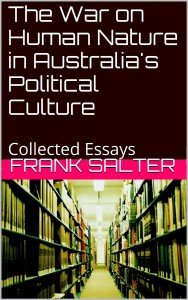Bruce Shipman and the Idealized Image of Jews among Elite Protestants
In his The Rise and Fall of Anglo-America, Eric Kaufmann described liberal Protestantism as one of several liberal traditions in American history. Although it had its origins in the 19th century, by 1910 there arose a liberal Protestant elite committed to “universalist, humanitarian ethics.” Elite Protestants (but not the great mass of Protestant Americans) were opposed to immigration restriction in the 1920s and were at the vanguard of the Civil Rights movement in the 1960s. They embraced the dream of universal humanity, and they developed idealized images of Jews who, after World War II, had assumed the leadership of liberal causes in the U.S.
But, as Kaufmann notes, Anglo-America has lost its political power and has been deposed from its position as cultural trend setter. Some of the fallout from the demise of elite Protestants can be seen in Mark Oppenheimer’s Tablet interview of Bruce Shipman — the Episcopalian chaplain who ran afoul of the Israel Lobby (my take). The interesting part:
Oppenheimer is recounting a conversation he had with a leftist Jewish friend who is critical of Israel:
[Oppenheimer]: I said to him, “You spend so much time among anti-Zionists. How can you tell which ones, which minority, are anti-Semites?” And he said, “Well, that’s easy.” He said, “It’s the liberal Protestants. The Jews aren’t anti-Semitic, even if they’re called self-loathing. And the Muslims aren’t anti-Semitic, because they get us.” He said they understand everything about us, as we understand everything about them. He said it’s the well-meaning leftie Protestants. They profess a deep spiritual kinship with Jews, they’ve often lived in the Middle East, they’ve led tours there.
[Shipman]: He’s talking about me! [laughs]
Muslims and Jews understand each other; they see each other as implacable enemies and they understand each other’s fanaticism, their mutual hatred, and the impermeable barriers between their groups. As Christine Amanpour showed in God’s Warriors (see also here), religious fanaticism in Israel and among Muslims is the order of the day in the Middle East. Indeed, the social structure of society fragmented into mutually hostile groups is endemic to the area and likely biologically based (see here, xxv-xxxi). Neither expects any quarter. A fight to the death. Read more





